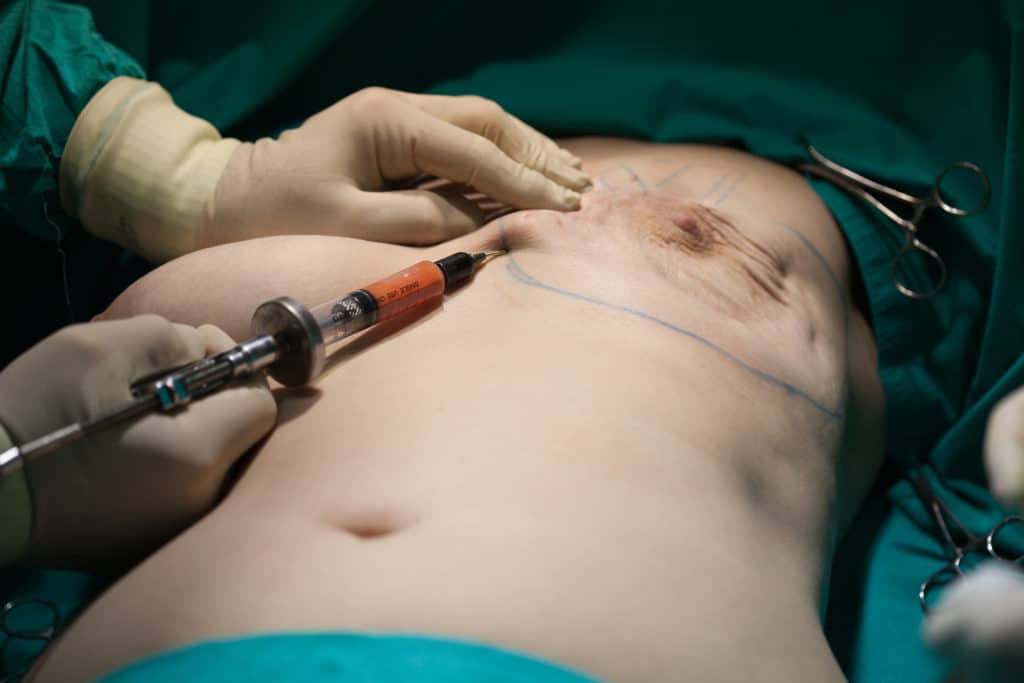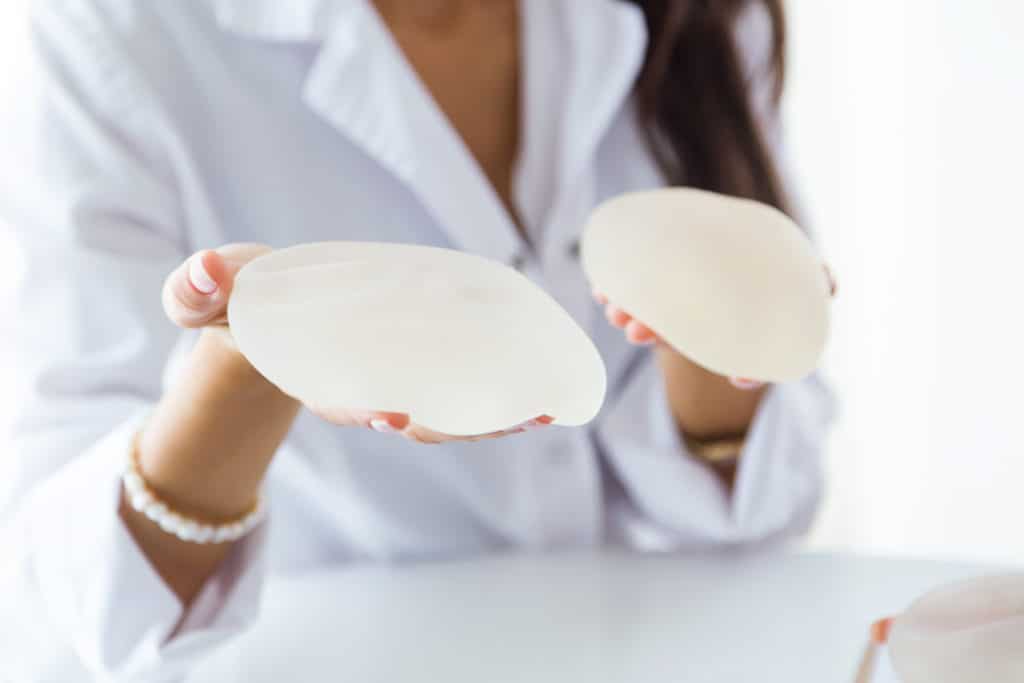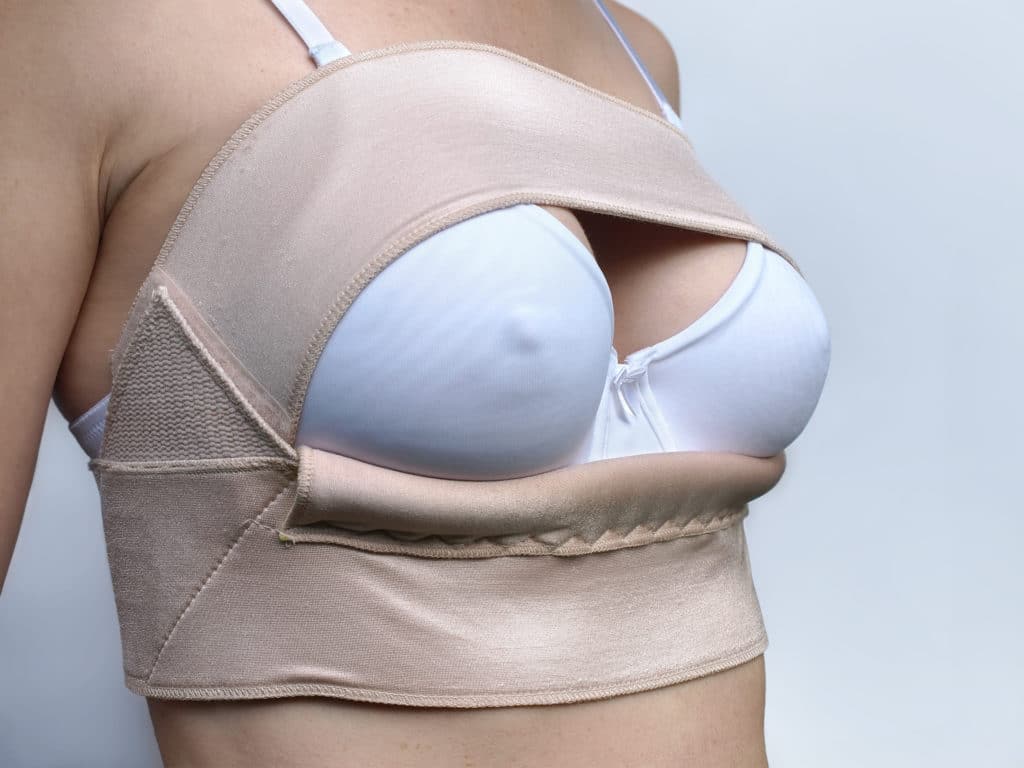Breast Reconstruction
in Albany
If you are unhappy with the appearance of your breasts and wish to regain the stunning physique of your youth, be sure to speak with Dr. Malcolm Z. Roth about breast reconstruction! Dr. Roth can answer any questions you have, help you understand the benefits of breast reconstruction, and can use the latest techniques to help you realize your aesthetic dreams. Call 518-262-2229 today for your consultation at our Albany, NY office!
What is Breast Reconstruction?

Types Of Breast Reconstruction
Breast reconstruction is performed in several steps, and there are essentially two types. Which one is used depends on whether there is enough tissue on the wall of the chest to cover/hold an implant. Whichever type is used, a woman’s breast surgeon and plastic surgeon should work as a team during reconstruction.
Autologous-Tissue Breast Reconstruction
Autologous-tissue breast reconstruction is used if there is not enough tissue left post-mastectomy to create a new breast using tissue expansion, or a woman does not want implants. During autologous-tissue breast reconstruction, a breast is created using skin, fat, and, sometimes, muscle from other parts of the body. The abdomen, back, buttocks or thighs are all donor sites. The donor tissue, which is called a “flap,” is either surgically removed and reattached (free flap) to the chest, or left connected to its original blood supply and “tunneled” through the body to the chest (pedicle flap). There are a number of different flap techniques; which one is used depends on the individual patient. Factors taken into consideration include how much extra tissue is available for transfer; the width and flexibility of blood vessels; and how large the breast(s) needs to be.
Implants may or may not be used with autologous-tissue breast reconstruction. Constructing a nipple and areola is performed in a separate surgery.
Breast Reconstruction with Implant/Tissue-Expansion

Breast Reconstruction with Fat-Transfer
“Autologous fat transfer” removes fat from an area of the body that has fat to spare, and places it in the reconstructed breast for results that look and feel natural. By using the patient’s own fat, the hard look and feel often associated with implants is eliminated. Many women also like the idea that a foreign material has not been inserted into their bodies. The cosmetic benefit of fat transfer is that the area, usually the abdomen, from which the fat is taken becomes slimmer and more contoured. Fat-transfer breast reconstruction is ideal for nearly any woman who wants a breast reconstructed, does not want to use a saline or silicone implant, and has enough body fat available to sufficiently rebuild the breast.
Breast reconstruction using autologous fat transfer has a number of benefits over breast reconstruction with implants, including the following:
- No risk of implant rejection
- Ability to shape and sculpt the breasts
- Minimal number of incisions
- Reduced scarring
- No risk of capsular contracture
In general, a breast reconstructed from a patient’s own tissue is more similar in shape, contour, and feel to a natural breast than one reconstructed using an implant.
It is essential that a patient have reasonable expectations about the results reconstruction provides.
Recovery From Breast Reconstruction

Risks Of Breast Reconstruction
In addition to the risks associated with surgery and anesthesia, those related to implant/tissue-expansion breast reconstruction include infection around the implant, implant leaks and ruptures, and implant deflation or shifting. Risks related to autologous breast reconstruction, depending upon the technique used, include fat necrosis, abdominal weakness, hernia, and a mismatch between chest tissue and donor tissue.
Correcting reconstructive problems typically requires additional surgery.
Results Of Breast Reconstruction
A reconstructed breast will not look the same as the original breast. And although a surgeon attempts to match the size, shape, position, and other attributes of the remaining breast, an exact match is not possible. To achieve symmetry, the remaining breast may be operated on to make it bigger or smaller, or to lift it.
In addition to not looking the same as the original, a reconstructed breast has little sensation, although there may be more when autologous tissue rather than an implant is used.
Patient Testimonial
“This doctor is very kind. I got surgery Yesterday and he made sure to call me today to follow up with me and allow me to ask whatever questions I may have. The care at Albany Meds hospital was amazing the nurses were great. My preoperative nurse also called me today to find out how I was doing. I would definitely recommend Dr. Roth to my family and friends looking for a surgeon in the area.” – Y.M
Schedule Your Breast Reconstruction Consultation In Albany, NY!
If you’re interested in learning more about breast reconstruction please contact us for a consultation at 518-262-2229 or fill out our contact us form. We will discuss your needs and concerns, and determine your best course of action.
